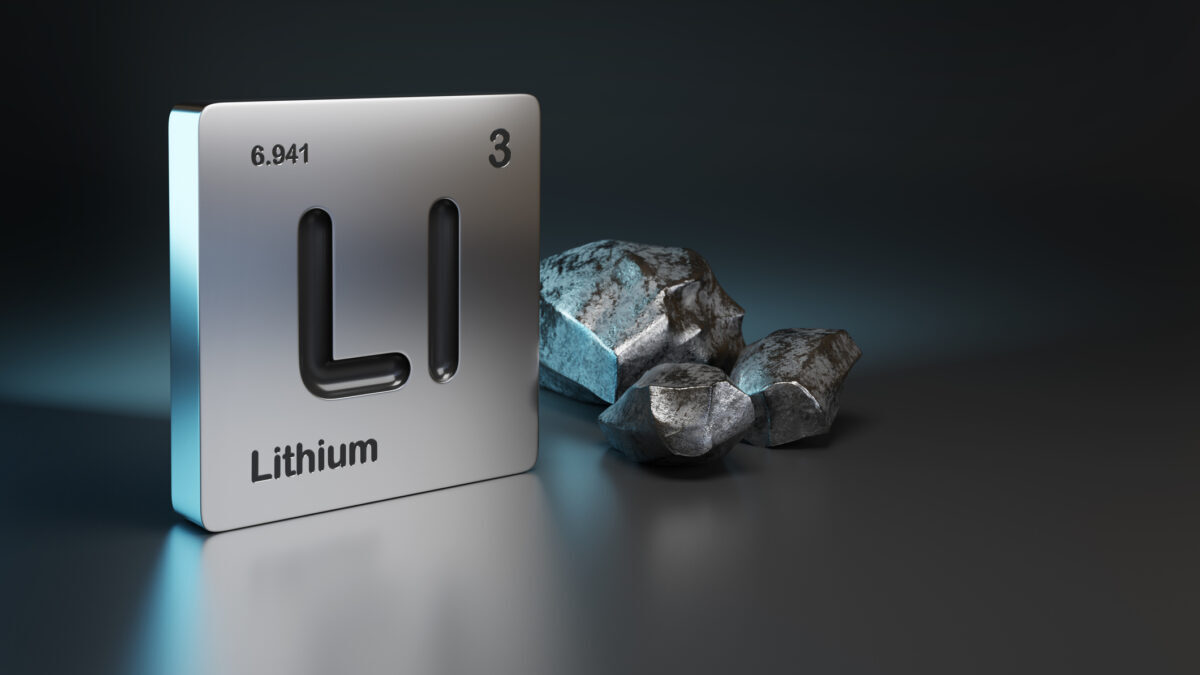Five (or so) questions for Pilbara Minerals MD Dale Henderson (which he answered)

Pic: JRoballo/iStock via Getty Images
The lithium market has come to life in recent days after a difficult start to the year.
Equities have shed value across the board as prices have fallen in China, spooking investors who enjoyed the dizzying highs of last year’s electric vehicle driven lithium boom.
With supplies of the white gold hard to come by, downstream chemical prices charged beyond US$80,000/t and desperate converters in need of raw materials paid Australian spodumene producers in excess of US$8000/t.
For reference, Australian miners operate at a cost base of well under US$1000/t.
Over in China, where demand appears to have eased in early 2023, carbonate prices have fallen to ~US$37,800/t, less than half of last year’s highs.
With the Japanese and Korean markets factored in, hydroxide was fetching US$62,000/t yesterday, carbonate US$49,500/t and spodumene a still very healthy US$5350/t according to Fastmarkets.
The fall from record highs has also created a window for M & A, as seen in Albemarle’s offer of a 63% premium to take out mine builder Liontown Resources (ASX:LTR) at a record $2.50 per share on Tuesday.
Pilbara Minerals (ASX:PLS), which made an astonishing $1.24 billion in net profit after tax in the December half and paid a ~$330 million maiden dividend to shareholders, followed up yesterday with news it had approved a $560 million expansion of its Pilgangoora mine in WA’s North West to over 1 million tonnes of spodumene per annum.
With over $2.2 billion in the bank, there is plenty of room for the $12 billion capped ASX giant to grow.
We caught up with Pilbara Minerals (ASX:PLS) MD Dale Henderson to ask him about the state of the lithium market and the expansion of the miner’s world class, tier-1 lithium business.
Before I go on to the Pilgangoora expansion, as a player in the industry, what does the 60% premium offered by Albemarle for Liontown and its rejection suggest to you about the state of the lithium industry relative to the downturn we’ve seen equity markets this year?
“I think it’s a really positive signal. Albemarle is probably one of the best placed industry participants. being the largest lithium producer globally.
“And here they are under the cloak of darkness, offering a 60% premium. Clearly, they have a very positive outlook on the industry. They’re putting their money where their mouth is. I think that’s incredibly positive for the industry and where it’s heading.”
Does it make you take a look at Liontown and think that maybe it’s a merger and growth opportunity for Pilbara as well, given where you’re at now with your cash balance?
“I get that question a bit around inorganic growth. And yes we’ve got a healthy balance sheet but from where we’re at in our business growth journey, we’re keeping our feet on the ground and delivering on our strategy, which I speak to fairly frequently around operating platform being the first priority, then expanding that operating platform, which of course the FID decision today speaks to that.
“Thirdly, it’s about downstream integration and really the last thing on the list for us is inorganic growth. And the reason it’s last on the list is we think the quickest, most rapid value creation we can do is in that order of operating platform, expanding this incredible asset we’ve got at Pilgangoora so our energy its basically focused on those sort of priorities.”
So when you look at Pilgangoora, I think everybody expected you to make this decision as well, maybe not as soon as you did. But you add 320,000 tonnes of production on top of the 100,000 tonnes you’re adding over the next 12 months, you’re obviously pretty confident that you’re going to be able to either secure the offtake or do some sort of downstream deal where those tonnes would go into a new plant.
“That’s right. We’ve got a high level of confidence around that and that comes from two parts. In the first instance, it’s our insight into the existing chemical conversion industry and what available capacity exists. That’s first and foremost.
“The second piece relates to the opportunities to involve ourselves in either existing operations or operations to be built and in both those categories there is strong opportunity.”
Pilbara Minerals (ASX:PLS) share price today:
What are the things that you’re looking at for conversion capacity or downstream JVs outside of the POSCO deal, I think you’ve got it 18% and there’s the option for for additional 12%. When do you look at maybe exercising that option?
“Sure. So with the POSCO joint venture you’re correct. We’re sitting at an 18% equity level at the moment, we have an option to increase it to 30%. As to the timing, we’re in no rush around that decision. With our agreement with POSCO, it gives us quite a large window on which we can bide our time on that one. So (there’s) no hurry in that regard.”
You faced blowouts or cost increases on the P680 project? Are you concerned about what you might be looking at down the line in terms of industry construction costs, labour shortages for the 1 million?
“As it relates to inflation pressures, of course we feel we’ve factored and allowed for those pressures within this investment case. So I think the team has prepared an investment case prudently and we’ve had that peer reviewed, etc.
“So it’s as robust as you could hope for. But, when we look at the future, of course there’s uncertainty particularly against this global backdrop. So you can’t be 100% sure what’s around the corner. But what gives us some some good comfort is it relates to an expansion project.
“Largely, it doesn’t get any easier than this. Every expansion project is tough but in our case, this is expanding off an existing operating base, it’s a brownfields expansion.
“We’ve got an operating team with demonstrated performance who have been shooting the lights out. So as it relates to commissioning and ramp up, those sorts of aspects are in good hands, approvals are in good hands, funding is in good hands. So as I say, it’s as derisked as you could hope for. But of course, there’s always a level of uncertainty.”
The resource itself, you go to around 25 years of mine life. Is there going to be a new focus going into exploration to see how far you can push that out and how much you can grow or identify new resources?
“So the rigs are actually out there at the moment drilling away and late in the calendar year, we will look to update our reserves. And all going well, we’re hopeful and positive that we will be doing a reserve increase, but of course we’ll wait for the drilling results on that.
“But historically, the more we’ve drilled, the more we’ve found, and we built this just incredible Tier 1 asset which keeps giving so we’ll see how we go.”
Just on the lithium market itself, we’ve seen lithium carbonate prices in China halve according to price agencies since late last year. Do you get a sense that pullback is maybe coming to an end or that demand is coming back in China? How is that supply-demand balance at the moment and what are you seeing from customers in terms of their interest in getting new supply and how concerned they are about their post-2025 outlook?
“As to the appetite for more product and partnership, that remains as strong as ever and there’s certainly no waning or concerns around the want to grow production and secure more product. To the near term horizon and what’s been occurring, yes domestic pricing in China has come off. I note that the export market has held up fairly strongly.
“What gives us confidence as a major raw material supplier and the market outlook is in the first instance that contact with our customers and their strong appetite and the second instance is just looking at the raw demand at the end of the supply chain.
“The EV adoption curve and so on, so forth. That remains strong.
“And the third piece which gives us confidence is our understanding of the built capacity through the supply chain. Closest to home in the chemical conversion step we see high levels of production capacity without product supply and then beyond that cathode making, battery making, EV making and the like.
“Our assessment is that there’s high levels of capacity there and it does look like there’s going to be a shortage of raw material supply for some time yet. So the sum of those gives us good high level of confidence on the long term outlook.”
Is that something you think isn’t well understood by the market if you look at equities such as yourselves. Before the (Liontown) news yesterday, you were 32.5% down from your January high.
“I think the equities market, as always sometimes the reaction’s a bit outsized.
“And I think one of the challenges for the lithium industry and for the equities market is being it’s a new industry, it’s growing quickly, there’s lots of things changing.
“There’s no historic playbook to really guide what’s going on, it’s very much plowing a new path as that sort of emerges.
“So because of that, I think the equities market reacts more in contrast to say a more mature industry, which has got a more solid history and established an even supply-demand balance.
“That hasn’t occurred yet for lithium, we’re very much on this rapid growth curve. So for those reasons, I think you’re seeing the reaction is outsized in equities.”
We’ve seen the bid for Liontown and spoke about your potential M & A ambitions yourselves, but do you think there’s a chance that you would be seen as a takeover target from a bigger company either in lithium or in the diversified space?
“Look you never know how things might go. I don’t have any sort of feelings for that occurring, to be honest. But this is an emerging market and there’s some desperation emerging at some parts of the supply chain. So anything’s possible.
“For us as a business, we just obviously keep focused on delivering value, keeping our head down and growing the operation and, all going well, printing those amazing returns that we’ve been doing to date.”
Related Topics

UNLOCK INSIGHTS
Discover the untold stories of emerging ASX stocks.
Daily news and expert analysis, it's free to subscribe.
By proceeding, you confirm you understand that we handle personal information in accordance with our Privacy Policy.








